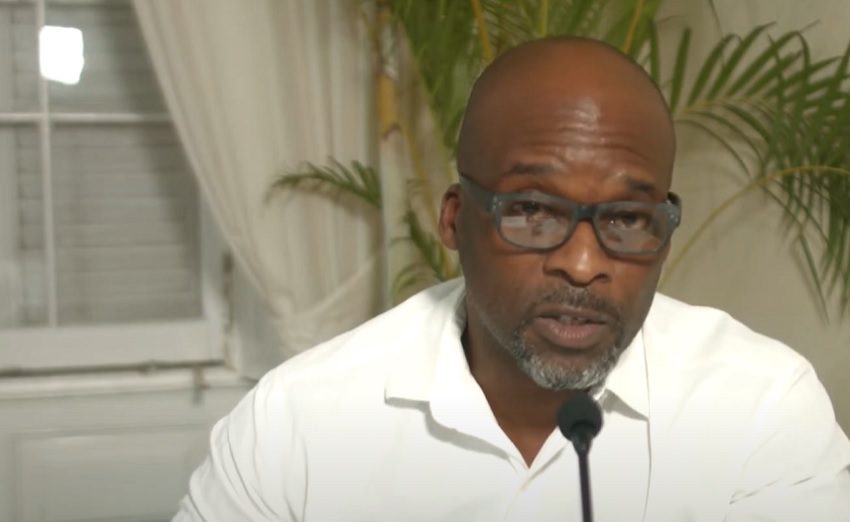Health officials are putting contingency plans in place for additional isolation facilities as they brace for a surge in COVID-19 infections, after the Omicron variant was detected in Barbados.
Deputy Chief Medical Officer, Dr. Anton Best, stated that modelling conducted by the University of the West Indies and a team, including the public health group, predicted that the presence of the variant could result in increasing infections, an overburdened health care system, and increased hospitalisations.
Speaking during a virtual COVID-19 update this evening, Dr. Best said the modelling indicated that in a worst case scenario with a wave lasting between six to seven weeks, Barbados could see as many as 3,500 cases per day, with a total of 91,000 infections for the period.
However, in the event of a shorter wave lasting just over one month, the island could expect to see a maximum of 1,200 cases per day at the peak, resulting in 23,000 cases at the end of the one-month period.
This, he said, was likely to result in an increased burden on the healthcare system, particularly with hospitalisations.
“So, in the best case scenario, we are looking at 1.2 per cent of persons infected with the Omicron variant being hospitalised. And in the worst case scenario, we are looking at three per cent of persons being hospitalised,” he said, noting that these referred to those who were flagged as red under the isolation programme.
The Deputy Chief Medical Officer explained that in a three per cent scenario, hospitalisations could peak at 700 cases, with the average stay being seven days.
He noted that the Ministry was seeking to secure additional isolation facilities to complement those at the Harrison’s Point Isolation Facility and Sunbay Hotel.

Despite this, Dr. Best said the Ministry would also be continuing its home isolation programme with self-monitoring and self-isolation, which would be critical in preparing for the next wave.
However, Dr. Best told the public that getting vaccinated and booster shots was one of the key ways of combating the effects of the Omicron variant.
He noted that with just over 53 per cent of Barbadians vaccinated, and 10 per cent with natural immunity, due to infection with the previous strains of COVID, there was a need for more persons to get vaccinated.
“One of the key recommendations in responding to Omicron is to strengthen your vaccine programme, because the first time vaccinations, as well as boosters, will significantly reduce the likelihood of death and severe disease due to the Omicron variant,” Dr. Best stated.
He added that the health officials were also paying close attention to the impact the Omicron variant had on children, and were already in discussions with the Pediatric Department at the hospital to pave a way forward.
